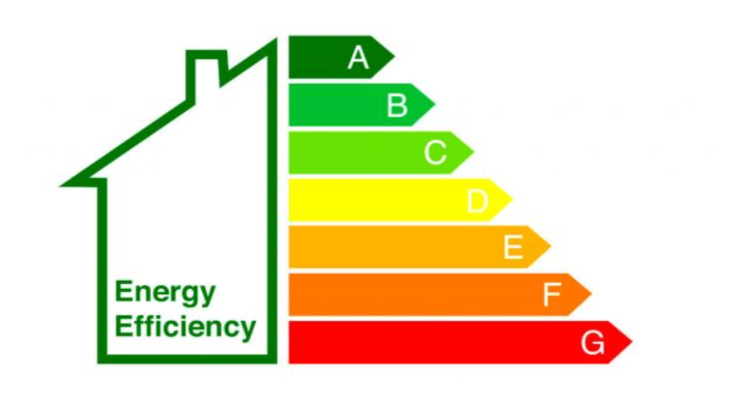
What is an Energy Performance Certificate (EPC)?
An Energy Performance Certificate (EPC) is a legally valid document that provides an energy efficiency rating for a property.
This rating is displayed on an A-G scale, with A being the most efficient and G being the least efficient.
The EPC takes into account the potential energy performance of the property itself (such as its insulation and construction) as well as its services (such as heating, lighting, and hot water systems).
In addition to the energy efficiency rating, the EPC also includes a breakdown of the property's energy performance, its environmental impact, recommended improvements, and estimated energy use alongside potential savings.
It is important to note that the rating is based on standard occupancy assumptions and may not reflect the actual energy usage of individual occupants.
Why are EPCs important for property owners?
EPCs are essential for property owners as they provide valuable information about a property's energy efficiency and running costs.
This information can help property owners identify areas for improvement to reduce energy consumption and save money.
Additionally, EPCs are required by law when selling or renting out a property, ensuring that potential buyers or tenants have accurate information about the property's energy performance.
By obtaining an EPC, property owners can demonstrate their commitment to sustainability and environmental responsibility, which can be a valuable selling point for environmentally conscious buyers or tenants.
Overall, EPCs play a crucial role in promoting energy efficiency and helping property owners make informed decisions about their properties.
Understanding EPC Ratings
EPC Ratings Explained
An Energy Performance Certificate (EPC) is a legally valid document that provides an energy efficiency rating for a property.
This rating is displayed on an A-G scale, with A being the most efficient and G being the least efficient.
The EPC takes into account the potential energy performance of the property itself, such as its insulation and construction, as well as its services, including heating, lighting, and hot water systems.
The EPC not only gives an overall energy efficiency rating but also offers a breakdown of the property's energy performance, its environmental impact, recommended improvements, and estimated energy use alongside potential savings.
It is important to note that the rating is based on standard occupancy assumptions and may not accurately reflect the energy usage of individual occupants.
The A-G Scale: What Each Rating Represents
On the A-G scale, an A rating signifies that a property is highly energy efficient, while a G rating indicates that it is the least efficient.
The ratings are calculated based on the property's energy efficiency cost rating and its environmental (CO2) rating.
By understanding the A-G scale and what each rating represents, property owners can easily gauge the energy efficiency of their properties and identify areas for improvement.
In summary, an EPC provides valuable information regarding a property's energy performance and can guide property owners towards more energy-efficient practices.
Components of an EPC
An Energy Performance Certificate (EPC) is a document that provides an energy efficiency rating for a property.
It is important to understand the components of an EPC, which include the assessment of the property's fabric and services.
Property Fabric: Assessing the building's structure and insulation
The EPC takes into account the potential energy performance of the property itself, including its walls, windows, roof, and insulation.
This assessment considers the quality and efficiency of the building's fabric in retaining heat and preventing energy loss.
A well-insulated and properly constructed property is likely to receive a higher energy efficiency rating.
Services: Heating, lighting, and hot water systems
The EPC also evaluates the energy efficiency of the property's heating, lighting, and hot water systems.
This includes assessing the efficiency of boilers, radiators, lighting fixtures, and other appliances.
The rating takes into account the energy consumption of these services and their corresponding impact on the property's overall energy performance.
In conclusion, an EPC provides a comprehensive assessment of a property's energy performance by considering both its fabric and services.
This information allows property owners to identify areas for improvement and make informed decisions to increase energy efficiency.
Importance of Environmental Impact
How EPCs consider the property's impact on the environment
An Energy Performance Certificate (EPC) is not only about assessing a property's energy efficiency, but also its environmental impact.
EPCs take into account factors that contribute to carbon emissions and energy consumption, helping property owners understand and reduce their environmental footprint.
Reducing carbon emissions and energy consumption
EPCs provide recommendations for improvements that can significantly reduce carbon emissions and energy consumption.
These recommendations may include upgrading insulation, improving heating systems, or installing energy-efficient lighting.
By implementing these suggestions, property owners can contribute to a greener future and lower their energy costs.
It is crucial for property owners to take the environmental impact of their properties into consideration.
By understanding the energy efficiency and environmental implications through EPCs, individuals and businesses can make informed decisions and take steps towards a more sustainable future.
Benefit of Recommendations
An Energy Performance Certificate (EPC) evaluates not only a property's energy efficiency but also considers its environmental impact.
These certificates provide valuable recommendations for improvements that can enhance the property's energy efficiency and contribute to a more sustainable future.
Recommendations for Improvements: Enhancing energy efficiency
EPCs include specific recommendations to help property owners reduce their carbon emissions and energy consumption.
These recommendations may involve upgrading insulation, improving heating systems, or installing energy-efficient lighting.
By implementing these suggestions, property owners can not only lower their energy costs but also make significant contributions to reducing their environmental footprint.
Estimated Energy Use and Potential Savings
Energy Performance Certificates also provide information on the estimated energy use and potential savings for a property.
This estimation indicates how much the average household would spend on heating, lighting, and hot water in that property.
Additionally, it highlights the potential savings that could be achieved by implementing the recommended measures.
By considering the recommendations and estimated energy use outlined in the EPC, property owners can make informed decisions that prioritise energy efficiency and contribute to a more sustainable future.

